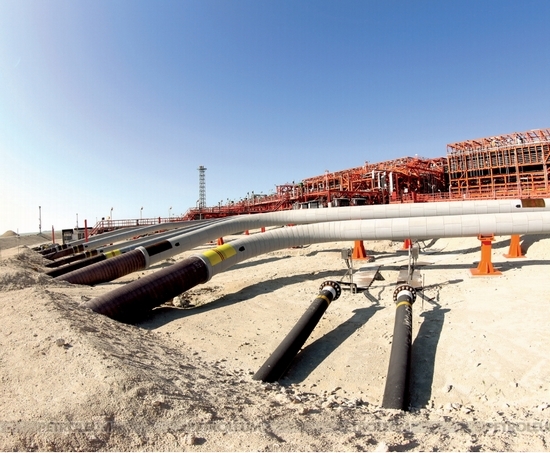Legislation
The Priority Right of the State
Maxim Burak, Senior Associate, GRATA Law Firm
Dariya Saginova, Lawyer, GRATA Law Firm
1. Introduction
 Maxim Burak
Maxim BurakAs is known, contracts for subsoil use have a special status.This is because they concern the natural resources of the Republic of Kazakhstan and thus the country's vital interests. The subsoil of Kazakhstan is the exclusive property of the State. Despite the fact that the State grants the right of subsoil use to the possession of individuals, it nevertheless endeavours to retain substantial control over the rational use of mineral resources.
The priority right of the State was first introduced in December 2004, as part of the amendment to the Law of the Republic of Kazakhstan on 'Subsoil and Subsoil Use' of January 27, 1996. Before the adoption of this legal amendment, in general the notion of the State's priority right had not been clearly established.
One of the reasons for introducing the concept of the priority right may have been the situation in 2003, when one of the participants in the development of the Kashagan field had announced the sale of shares belonging to it (16.67%) in the North Caspian Production-Sharing Agreement ('NPS') to two Chinese companies. The other NPS subsoil users who held the priority right to acquire the share of the outgoing subsoil user, expressed a desire to exercise their priority right of first refusal to acquire the said shares, though at that time in the Republic of Kazakhstan such a right had not been expressly agreed. In connection with this, Kazakhstan declared its right to purchase shares of alienated right of subsoil use, which took precedence over the priority rights of other parties.
Over time, the State widened the scope of application of its priority right. In particular, the priority right was extended to cover participatory shares in a subsoil user or its direct and indirect owners.
2. The concept of the priority right and how it is exercised
 Dariya Saginova
Dariya SaginovaCurrently, the State's priority right is understood to be the priority right of the State to acquire the alienated right of subsoil use (parts thereof) and/or objects associated with the right of subsoil use. The objects related to the right of subsoil use are defined as: 1) a share/shares in a legal entity which has the right of subsoil use or 2) shares in a legal entity which has the ability to directly or indirectly determine the decisions and/or influence the decision making process of such a user, if the legal entity's main activity is connected with subsoil use in the Republic of Kazakhstan (the 'Objects')[1]. In other words, the State, typically represented by a national company, has the right to redeem alienated the subsoil use right and objects, not allowing them to be transferred to third parties.
The issue of whether to refuse or exercise the priority right of the State is the duty of the Ministry of Oil and Gas of the Republic of Kazakhstan (for hydrocarbon projects) and the Ministry of Industry and New Technologies of the Republic of Kazakhstan (for solid minerals). These bodies act as the so-called competent authorities within their respective spheres.
Among the national companies involved in the implementation of the State's priority right in the mining sector are JSC NGK Tau-Ken Samruk ('Tau-Ken'), and in the area of hydrocarbons – JSC National Company KazMunaiGas ('KMG').

To date, the Law on 'Subsoil and Subsoil Use' of June 24, 2010 year (hereinafter – 'the Subsoil Law') stipulates the need to obtain permits for the transfer of subsoil use rights or objects. For this the alienator must submit an application to the competent authority in accordance with the requirements of the Subsoil Law. This statement should include a request to consider whether the priority right of state applies, and, if the appropriate decision is made, to consider issuing the waiver of the priority right.
After receiving the application, the competent authority verifies the package of documents. Further materials are forwarded to the national welfare fund Samruk-Kazyna JSC, which, in turn, forwards them to appropriate national company (KMG or Tau-Ken). In response, the national company sends a conclusion regarding its interest/disinterest in acquiring the alienated right of subsoil use and (or) objects.
At this time KMG also provides documents for review to its subsidiary JSC KazMunaiGas Exploration Production to obtain the appropriate conclusion.
The consideration of abovementioned applications by the national company is not expressly stated in the Law. Rather, it follows from the provisions of the law on mineral resources that the State has a priority right to purchase alienated right of subsoil use objects through the national managing holding company, national or an authorized State body.
Subsequently, the conclusion of the national company together with materials submitted to the competent authority are put before Inter-Ministerial Commission for exercising the priority right of the State (the 'IMC'). As a result, taking into account the opinion of the IMC, the competent authority makes the decision to either exercise or not exercise the priority right.
Next, the application is considered by an expert commission which advises on whether to allow the alienation of the subsoil use right or objects. Then, based on the recommendations, the competent authority makes the appropriate decision.

The final response of the competent authority is like a letter and contains a waiver of the priority right (or decision to exercise it), and permission for the transfer of subsoil use right or objects (or a refusal to grant such permission). The letter also contains links to relevant protocols of the appropriate meetings of IAC and of the expert commission.
At this time the Subsoil Law lists a number of cases in which permission to transfer the right of subsoil use, or objects, or a waiver of the right of priority, are not required.



